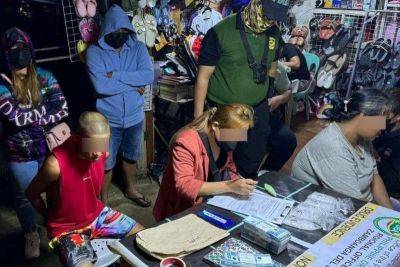29 arrested, including foreign nationals, in Cavite scam operation
MANILA, Philippines — The National Bureau of Investigation (NBI) has apprehended 29 individuals in Cavite who were working in a scam hub operated by foreign nationals.
According to the NBI, the operation on August 9 targeted four residential houses in Grand Centennial Subdivision in Kawit, Cavite.
Among those arrested were five foreign nationals, while the remaining 24 individuals apprehended were Filipinos.
During the execution of the search warrants, several suspects were caught operating electronic devices—such as desktop computers, laptops and cellphones—loaded with scam scripts designed to deceive victims into revealing sensitive information or investing money.
NBI Director Jamie Santiago reported that the seized computers and other devices were being used for various global scamming activities, including romance scams, investment scams, cryptocurrency scams, impersonation scams and credential stuffing.
The workstations were operated by Filipinos under the direct supervision of foreign nationals.
“What they are doing is sophisticated and semi-independent. Their operation involves different departments and locations, with a compartmentalized structure to evade detection by law enforcement,” Santiago said in a press conference on Tuesday.
The NBI official revealed that the residential units contained scam showrooms displaying live desktop computers and counterfeit luxury items. These showrooms were designed to create a sense of authenticity, tricking potential victims into believing they were purchasing genuine high-end products.
The NBI’s preliminary forensic examinations of the devices and digital evidence confirmed violations of the Cybercrime Prevention Act of 2012 and the Anti-Financial Account Scamming Act.







